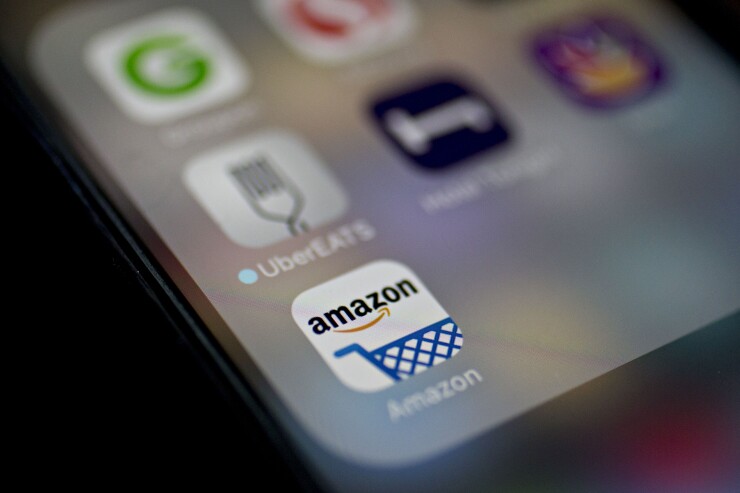Amazon’s an attention machine, making its reported attention to Mexico’s criticized mobile payment project something banks have little choice but to see as a welcome development instead of a threat.
Amazon is one of at least two major e-commerce companies that could support CoDi, Mexico’s new mobile payment project, which thus far has been dogged by complaints about the underlying technology, fee scheme, and ability to generate more than a shrug among merchants and consumers that are still happy to use paper money.

The Mexican government created Cobro Digital (CoDi) to boost financial inclusion in Mexico, where the World Bank estimates only 34 million Mexicans have bank accounts — yet 67 million have mobile phones — out of a total population of 130 million. The
Like India and Brazil, Mexico wants the tax and data benefits that digital payments provide over cash, so it's taking a heavy hand in pushing mobile payments.
Both Amazon and MercadoLibre have momentum in Mexico, and plenty to gain by embedding a public option for digital payments. Amazon’s yearly Mexican volume is more than $500 million and doubling on a year-over-year basis, according to
CoDi’s pilot is scheduled to start later in March, yet the system is already suffering from claims of
“Mexico has a large underbanked population and a high penetration of cash. E-commerce and mobile devices are a key impetus to change that due to the ubiquity of the phone, combined with the logistical difficulties of paying cash for online purchases,” said Rick Oglesby, president of AZ Payments.
Amazon is often seen as a
“The banks aren’t at any more risk than they were when they failed to provide payment alternatives to a significant percentage of the Mexican population,” said Thad Peterson, a senior analyst at Aite. “There is a risk that the new offering will create some disintermediation from the banks, but it’s not much different than where they were before the new offering. They weren’t offering a viable alternative, and that doesn’t change with the launch of CoDi.”
About 20 banks will participate in the pilot, with the scheme becoming mandatory in 2020. CoDi includes a PSD2-style open banking data standard that encourages fintechs to partner with banks.
Other foreign companies are looking to reach merchants and consumers in Mexico.
That gives merchants an incentive to participate in the CoDi scheme, but also more responsibility for risk.
“Merchants have a good opportunity to control, if not operate, the Mexican payment network,” said Tim Sloane, vice president of payments innovation at Mercator. “To do this in this day and age, however, the merchants will likely need to become active supporters of KYC and anti-money laundering controls, something most retailers don’t worry much about or actively resist.”





